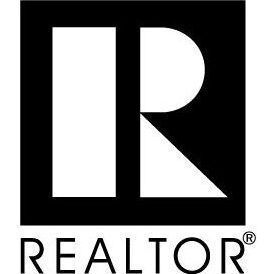What is the role and function of a Real Estate Agent?
A real estate agent's main role is to assist clients in buying, selling, or renting properties, including residential, commercial, and land. They are licensed professionals supervised by a real estate broker, providing guidance through transactions.
A real estate agent will help you navigate the complexities of the real estate market, provide property evaluations, negotiate deals on your behalf, handle paperwork, and offer expertise to ensure a smooth transaction. They act as a crucial intermediary between buyers and sellers, aiming to achieve the best outcomes for their clients.
How do I find a Real Estate Agent?
When seeking a reliable real estate agent for buying or selling a home, consider getting recommendations from acquaintances or exploring online options. Referrals from friends, family, colleagues, and online reviews can guide you in finding a trustworthy agent. Utilizing social media connections and conducting thorough research online are effective ways to ensure you choose a competent real estate agent.
Why hire a licensed Real Estate Agent?
Benefits of choosing a licensed real estate agent:
- Negotiation Expertise:
Your agent is skilled in negotiations, ensuring favorable terms during transactions.
- Accurate Pricing:
A good agent knows how to set the right selling price and assess fair market values accurately.
- Legal Navigation:
With formal education and training, licensed agents comprehend legal intricacies, aiding you in a secure transaction.
- Personalized House-Hunting:
Utilizing a network, agents go beyond online searches, finding homes that might elude your online exploration.
- Objective Guidance:
As an unbiased party, your agent provides honest advice, especially valuable when emotions might influence decisions.
- Market Insights:
Agents offer valuable insights into market trends, helping you make informed decisions.
- Efficient Transactions:
The right agent accelerates selling processes and enhances the likelihood of favorable outcomes.
Hiring a licensed real estate agent ensures a smoother, faster, and more profitable property experience.
How does the Real Estate Agent get paid?
Real estate agents are commonly compensated through commissions, not salaries or hourly wages. In a real estate transaction, the commission, usually paid by the seller, is distributed among the buyer's agent, seller's agent, and their respective brokers, with the specific split determined by agreements between the agents and brokers.
How to buy a Home?
Guide to Homebuying:
Essentials for Home Purchase:
- Maintain a solid credit score.
- Secure a down payment and closing costs.
- Obtain a pre-approval letter from a mortgage lender.
- Enlist the assistance of a reliable real estate agent.
- Prepare necessary income documentation for mortgage approval.
- Develop a comprehensive understanding of the home-buying process.
Step by Step Home-buying Process:
Step #1 - Financial Preparation:
- Assess credit score and savings.
- Organize finances, establish a budget, and consider homeownership expenses like insurance, taxes, and HOA fees.
Step #2 - Mortgage Pre-Approval:
Secure pre-approval to determine your qualified budget and price range for house hunting.
Step #3 - Commence Home Search:
- Focus on homes within your budget and identify your must-haves.
- Engage a real estate agent for valuable assistance.
Step #4 - Select Your Ideal Home:
Evaluate homes in your price range and make an offer on the one that suits your needs.
- Engage in negotiation for a favorable deal.
Step #5 - Closing the Deal:
Finalize the home purchase by completing the closing process.
- Move into your new home based on the agreed-upon timeline with the seller.
- Your real estate agent will guide you through the entire home-buying journey.
This overview provides a snapshot of the steps involved in buying a home in Virginia, ensuring a smoother process for first-time homebuyers.
How much down payment do I need to buy a home?
How much down payment do I need to buy a home?
While a standard down payment can be as low as 3.5% of the purchase price but
It can be from 3.5% to 20%, the actual amount you'll need to put down varies based on your qualifications and the lender you are working with.
There’s any program to help me with the down payment?
Certainly! There are programs designed to aid with your down payment, typically targeting first-time homebuyers who qualify for assistance.
Common Qualifications for Down Payment Assistance:
To be eligible for down payment assistance, you often need to meet criteria such as:
Being a first-time homebuyer
Having a low or moderate income
- Purchasing a primary residence - Buying within local price limits - Working with an approved mortgage lender and program specifics vary, and qualifications may differ between programs.
Types of Down Payment Assistance Programs:
Explore these four types of programs to assist with your down payment:
- Loans:
Obtain a second mortgage with monthly payments to support your down payment.
- Grants:
Receive gifted money that doesn't require repayment.
- Deferred Loans:
Some second mortgage loans for down payment assistance can be deferred until you move, refinance, or sell your home.
- Forgivable Loans:
Certain second mortgages for down payment assistance become forgivable after a set period, provided you don't move, sell, or refinance.
Some programs offer interest-free loans. You may even qualify for multiple down payment assistance programs. These programs are often localized, and your agent can guide you to suitable options.
What are the expenses when I decide to purchase a home?
When you're ready to purchase a home in the United States, it's crucial to understand the associated fees and expenses.
Common Fees and Expenses When Buying a House:
- Down Payment:
The initial and most frequent fee is the down payment, typically ranging from 3.5% to 20% of the final sale price.
- Earnest Money:
While not a direct fee, earnest money, usually around 1% of the purchase price, signifies your commitment to buying the home.
- Closing Costs:
The second-largest out-of-pocket expense covers various fees for loan preparation, including appraisal and home inspection fees.
- Moving Expenses:
Often overlooked, moving expenses vary based on whether you handle it yourself or hire professionals, ranging from a few hundred to several thousand dollars. Buying a home involves multiple costs. Ensure you consult with your real estate agent and lender to understand the financial requirements associated with the home-buying process.
What to do I need to check on the inspection when I’m buying a home?
When you're in the process of buying a home, a standard home inspection is conducted to reveal any potential issues before finalizing the purchase.
Let's explore some prevalent problems identified by home inspections in the United States:
- HVAC Problems:
Home inspections often highlight the need for HVAC system servicing, occasionally revealing significant issues.
- Water Damage:
Water damage, manifesting as warped floors, damp carpets, musty odors, peeling paint, or wall cracks, is a frequently identified issue.
- Roofing Issues:
Roof problems, ranging from leaks to major repairs, are commonly discovered during home inspections.
- Poor Ventilation:
Surprisingly, ventilation issues are frequently noted as part of home inspections for properties being considered for purchase.
- Plumbing Issues:
Inspections commonly uncover plumbing concerns, including issues related to water flow, drainage, or other plumbing systems.
- Foundation Issues:
A significant finding, foundation issues, can lead to substantial problems and are regularly identified during home inspections.
- Mold:
Mold is a frequent discovery during inspections, often attributed to local humidity levels or issues like leaks and excess moisture.
These are commonly detected by home inspections across the United States. It's essential to be aware of these potential concerns as you navigate the home-buying process.
What are the available types of mortgages?
When you're ready to buy a home, securing a mortgage is likely on your agenda. Understanding the common mortgage types available in the United States is crucial when exploring different lenders.
Here are some mortgage options to consider:
- Fixed-Rate Mortgage:
A prevalent option, the fixed-rate mortgage provides a set interest rate that remains constant. Typically, you'll find 15-year and 30-year terms, with the 15-year term often offering the best rates.
- Adjustable-Rate Mortgage (ARM): An ARM features an initial interest rate for a set period, followed by adjustments. For instance, a 5-year/3-month ARM has a fixed rate for the first five years, adjusting every three months thereafter.
- Conventional Mortgages:
Falling into either conforming or non-conforming categories, these mortgages aren't backed by the federal government. Generally requiring good credit and stable income, conventional loans are a common choice.
- Government Insured Mortgages:
Options like FHA, USDA, and VA mortgages are government-insured. Specific eligibility criteria must be met for these loans.
- Jumbo Mortgage Loan:
Reserved for high-cost areas and exceeding FHFA limits, jumbo mortgage loans may require additional documentation for qualification. The United States offers various mortgage types, and these options provide a glimpse into the diversity available for homebuyers.
What are the common mistakes when buying a home?
Avoiding common mistakes is crucial when buying a home in the United States.
Let's explore these errors in a simple manner:
- Financial Preparation:
Ensure you're financially ready for the excitement of buying a new home. Have sufficient cash for fees associated with the purchase.
- Set a Monthly Budget:
Instead of relying solely on a pre-approval letter, establish a clear monthly budget. Consider all new payments, including insurance and taxes.
- Vet the HOA:
get you’re considering a neighborhood with a homeowner's association (HOA), thoroughly vet it. Understand the rules and fees to avoid living in an unsuitable community.
- Pre-Approval Before Shopping:
Obtain a pre-approval letter before browsing homes online. Shopping first without knowing your approval limit can lead to falling for homes beyond your financial reach.
- Hire a Real Estate Agent:
Engage a real estate agent to guide you through this significant financial transaction. The seller typically covers the commission, making it a cost-free benefit for you. Professional assistance is essential in the home-buying process.
What’s my credit score?
Your credit score, often referred to as a FICO score, plays a crucial role in determining your eligibility for a mortgage. Here's a simplified breakdown of the basics:
Credit Score Range:
When a lender checks your credit, your score falls between 300 and 850, representing your creditworthiness. Lenders seek specific scores to qualify you for mortgage programs.
How a Credit Score is Determined:
Based on your credit history, including open accounts, debt amount, repayment history, and other factors, your credit score is calculated. Lenders may pull your score from one or all three credit bureaus, using the average, highest, or lowest score to qualify you.
Credit Score Ranges:
Different credit score ranges include:
- Excellent: 800 to 850
- Very Good: 740 to 799
- Good: 670 to 739
- Fair: 580 to 669
- Poor: 300 to 579
Qualifying for a Mortgage:
While a 580-credit score is often the minimum, many mortgage programs require a higher score. It's advisable to work on improving your credit before home purchase, aiming for the highest score possible. This increases your chances of mortgage approval and securing a lower interest rate.
How do I Sell my house?
To initiate the sale of your house, you have the option of enlisting the services of a real estate agent. This professional specializes in selling homes and can guide you through the process, ensuring your property is listed strategically for swift and lucrative sale. When you opt for an agent, you benefit from their expertise, including recommendations for any necessary repairs or enhancements. The agent will coordinate professional listing photos and implement effective marketing strategies to showcase your home. This approach grants you access to professional service, local real estate knowledge, and a streamlined sales process, potentially resulting in a quicker and more profitable transaction compared to attempting to list your house independently.
What is the process of selling a house?
Selling a house might feel overwhelming if it's your first time, but hiring a good real estate agent can simplify the process. To start, decide to list your home for sale and then prepare it for listing pictures by decluttering and making necessary repairs. Once your home is ready, your agent will take listing pictures and officially list it for sale. The key steps in the home selling process include listing your home, holding open houses and showings, accepting an offer, and going through contingencies like an appraisal and home inspection. Finally, after clearing contingencies, you'll close the deal and officially sell your home.
Here's a breakdown of the steps in selling a house:
- Decide to Sell:
Make the decision to put your house on the market.
- Prepare Your Home:
Declutter, make necessary repairs, and stage your home for listing pictures.
- Listing Your Home:
Your real estate agent will take listing pictures and officially list your home for sale.
- Open House and Showings:
Conduct open houses and showings to attract potential buyers.
- Receive Offers:
Wait for offers and, ideally, entertain a bidding war or multiple offers.
- Accept an Offer:
Choose the best offer and proceed to the next steps.
- Contingencies:
Navigate contingencies, including an appraisal, approved financing, and a home inspection.
- Clear Contingencies:
Ensure all contingencies are resolved before proceeding to closing.
- Closing:
Complete the closing process, and once everything is settled, your home will be officially sold.
- Move Out:
Depending on the offer terms, there might be a short period between closing and moving out, as specified in the accepted offer.
How can I decide on the appropriate asking price for my house?
Setting the right asking price for your home is a crucial step in the selling process. If it's too high, you might struggle to attract interest, and if it's too low, buyers might question the value.
Here are three key considerations when determining your asking price:
1.Trust Your Agent:
Rely on the expertise of your real estate agent. A knowledgeable agent understands market dynamics and knows how buyers search for homes. Trust their guidance to ensure an optimal listing price.
- Use Comparative Market Analysis (CMA):
A CMA is a valuable tool to gauge your home's value in the current market. By comparing your property to recently sold homes, your agent can establish a competitive and realistic price based on local market trends.
- Consider Online Search Patterns:
Take into account how buyers search for homes online. Pricing your home strategically within a certain range can enhance visibility. Work with your agent to set a price that aligns with online search behaviors, maximizing exposure for your listing.
How do I prepare my house for sale?
When it's time to get your home ready for sale, there are various tasks to consider, tailored to each unique home. To enhance its appeal, follow these steps:
Top 10 Ways to Prepare Your House for Sale:
1.Depersonalize:
Remove personal items like pictures to create a neutral space for potential buyers.
- Declutter:
Clear out unnecessary items to make your home appear more spacious.
- Make Repairs:
Address minor repairs recommended by your agent to improve the overall condition of your home.
- Have Your Home Cleaned:
Invest in professional deep cleaning to showcase a well-maintained and clean environment.
- Create Excellent Curb Appeal:
Enhance the exterior appearance of your home for attractive listing pictures and showings.
- Organize Storage Areas:
Ensure closets and storage spaces are organized and not overcrowded.
- Paint:
Apply a fresh coat of paint to refresh the look of your home.
- Get a Home Inspection:
Consider a home inspection to identify and address crucial repairs before listing.
- Arrange Care for Pets:
Plan for pet care during open houses and showings.
- Replace Light Bulbs:
Ensure all light bulbs are functioning to showcase your home brightly.
How Do I Close on the sale of my house?
When it's time to finalize the sale of your house, follow these simple steps:
Steps to Close on the Sale of Your House:
- Get Title Insurance:
Ensure a title search and secure title insurance, often managed by the closing agent and commonly required by lenders.
- Home Inspection:
Fulfill the home inspection contingency, which may lead to negotiations and repairs before the closing.
- Appraisal:
Address the appraisal contingency required by the lender to ensure everything is in order.
- Walk-Through:
Conduct a final walk-through about 24 hours before closing to verify that agreed-upon repairs have been completed.
- Finalize Paperwork:
On closing day, sign all necessary paperwork with the buyer, facilitated by the agent or attorney overseeing the closing.
Your agent will guide you through this process, addressing any questions you may have as you complete the sale of your home.
After selling your house, what should you do next?
After selling your house, there are important steps to take. Here's a straightforward list of the key actions:
Top 6 Things to Do After Selling Your House:
- Store Important Paperwork:
Keep copies of all closing and settlement paperwork in storage for future tax purposes.
- Understand Tax Implications:
Explore the potential capital gains taxes associated with selling your home and be prepared for any tax obligations.
- Use a Money Market Fund:
Consider placing your profits in a money market fund for a reasonable return and easy access to funds until you buy your next home.
- Thoughtfully Choose Your Next Home:
Take your time to ensure your next home aligns with your specific needs. Avoid rushing into a purchase due to external pressure.
- Reevaluate Your Financial Situation:
Use the opportunity to reassess your financial status after the sale. Examine potential down payment options and plan your next steps wisely.



